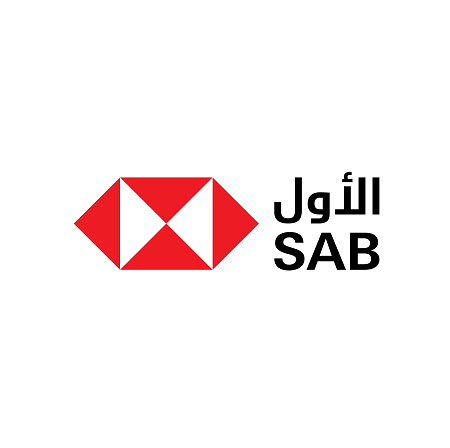-
Wealth Management
-
Low Limit Credit Cards
-
Debit Cards
-
Prepaid Card
-
ICSAB+
-
Finance
-
Help & Support
-
-
Help & Support
-
Cards
-
-
-
Tools & Resources
-
Ways to Bank
-
Help & Support
-
ESG at SAB
-
Security
-


Frequently Asked Questions
Have questions about SAB banking services? Let us help you with these frequently asked questions.
FAQSCustomer Service
Our friendly Customer Support team are on hand to help with any queries you have. We're here to help!
Contact UsQuick Links

FDI INFLOWS SIGNAL INVESTORSí CONFIDENCE IN SAUDI

Saudi Arabiaís efforts to attract foreign direct investment (FDI) delivered strong results in 2024, with inflows rising by 24.2% to reach SAR 119.2 billion. These gains reflect the impact of Vision 2030 programmes, national and sectoral strategies, and major initiatives, chief among them the National Investment Strategy (NIS).
For the fourth year in a row, NIS has exceeded its performance targets, covering gross fixed capital formation, foreign direct investment, and the relocation of international companiesí regional headquarters to Saudi Arabia. Gross fixed capital formation reached a record SAR 1.3 trillion in 2024, surpassing its target by 38%. Private sector investment ñ outside of government and oil ñ accounted for roughly three-quarters of the total, highlighting the growing dynamism of the domestic economy.
Foreign investment has surged since the launch of Vision 2030 in 2016. Annual inflows of foreign direct investment have multiplied more than four times, climbing from SAR 28.1 billion in 2017 to SAR 119.2 billion in 2024, well above the yearís target of SAR 109 billion. The kingdomís foreign investment stock nearly doubled to SAR 977.3 billion in 2024, compared with SAR 501.8 billion seven years earlier.
These inflows have been supported by reforms that make Saudi Arabia a more competitive and attractive place to do business. More than 50,000 foreign investment licenses have now been issued across a wide range of sectors. The number of global companies relocating their regional headquarters to the kingdom has also increased sharply, reaching 660 by 2024 ñ strengthening its position as the regionís leading investment hub.
The results highlight Saudiís resilience in a challenging global environment. While international capital flows have slowed, the NIS continue to attract diverse sources of FDI. Notably, non-oil investment accounted for about 90% of total inflows in 2024, with non-oil foreign investment representing 4.2% of the non-oil economy - considered to be formidable by global standards.
The kingdom's economic strength, coupled with its strategic location as a gateway to the wider region, will continue to drive foreign investment in the years ahead. The ongoing development of the investment ecosystem - through national and sectoral strategies ñ will be central to accelerating economic diversification and meeting the ambitions of Vision 2030.
CAPITAL FLOWS REMAIN ROBUST IN Q1
Data from the first quarter of 2025 show the investment momentum remain intact. Net FDI inflows in the kingdom rose 44% to SAR 22.2 billion in the first quarter of 2025, compared to the same quarter last year, according to the General Authority for Statistics (GASTAT).
FDI outflows from the kingdom totalled approximately SAR 1.8 billion in the period, reflecting a 54% decline from the same quarter in 2024, while increasing by 7% from Q4 of 2024. Conversely, inflows into the kingdom reached about SAR 24 billion, a 24% increase from SAR 19.4 billion in Q1 2024.
In addition, the Public Investment Fund (PIF) enjoyed a stellar 2024. Its assets under management (AuM) rose 19% to USD 913 billion by 2024,with an annual average total portfolio return of 7.2% since 2017. Total revenue surged 25%, and cash balance remained strong and broadly unchanged year on year as PIF maintains its robust liquidity. Capital deployment across priority sectors reached USD 56.8 billion in 2024, bringing cumulative investment since the beginning of 2021 to more than USD 171 billion. PIF continues to innovate to deliver on its mandate and drive economic transformation.
PIF is building on the successes with a new memorandum of understanding with Macquarie Asset Management to advance investments and collaboration in key sectors and industries, support foreign institutional investment in Saudi Arabiaís economy, and further enhance the kingdomís asset management industry.
Brand Finance, a leading global brand valuation consultancy, also recently ranked the PIF as the worldís most valuable and fastest-growing sovereign wealth funds for 2025, with a brand value of USD 1.2 billion, reflecting an 11% increase compared to 2024. This highlights PIFís role in advancing the kingdomís investment and economic interests, with the growth being attributed to consistent expansion of its AUM, strong performance of Saudi companies, and the maturation of projects aligned with Vision 2030.
ECONOMY
Major segments of the economy pulled their weight to boost the countryís trade flows and labour market in the second quarter of this year.
OIL
Fossil fuels will account for the biggest slice of the energy pie in the foreseeable future, even as renewable sources quadruple their share of the global market.
REAL ESTATE
Under the government-backed initiative, more than 100,000 families have received support in becoming homeowners.
SME
With its enabling environment, the kingdom remains a top destination for venture capital firms looking to allocate funds for small and medium enterprises.
Your are now leaving this site
Your are now leaving this site
You are about to leave this site. You are being redirected to an external site. Would you like to leave this site?
© SAB, Saudi Arabia. All Rights Reserved, 2025
Saudi Awwal Bank, a listed joint stock company, incorporated in the Kingdom of Saudi Arabia, with paid in capital of SAR 20,547,945,220, commercial registration certificate 1010025779, unified number 7000018668, Mailing Address: P.O. Box 9084, Riyadh 11413. National Address: 7383 King Fahad Branch Rd, 2338 Al Yasmeen Dist., 13325 Riyadh, Kingdom of Saudi Arabia, Tel. +966 11 4050677, www.sab.com, licensed pursuant to the Council of Ministers Resolution No. 198 dated 06/02/1398H and Royal Decree No. M/4 dated 12/08/1398H, and regulated and supervised by the Saudi Central Bank.

